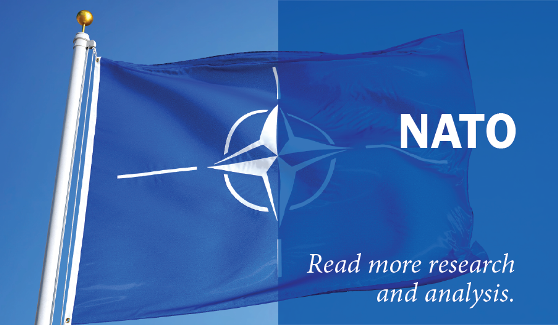Beyond NATO’s Eastern Border: Georgia, Ukraine, Moldova
 When NATO leaders convene for their 27th summit in Warsaw, the challenges set before them are greater than at any moment since the end of the Cold War. The Eastern challenge from President Vladimir Putin is overlaid by the mass exodus from the Middle East and North Africa and the brutal terrorist attacks in France, Belgium, and elsewhere. These threats to European security and European disunity should not be assessed in isolation from one another. This combination can be frightening. But timorousness is not the answer. In Warsaw, Allied leaders must address these challenges with bold new initiatives that speak to the fears of their populations. NATO needs to do more to strengthen deterrence on its Eastern flank. Significant improvements in NATO-Russia relations will only be achieved in an environment where the risks of a Russian attack on a NATO member are diminished from the current level. Strengthening deterrence of NATO allies in central Europe also requires measures further east along Russia’s periphery in Georgia, Moldova, and especially Ukraine. Explicit or implicit Article V commitments must remain limited to the Alliance itself, but how NATO responds to Russian aggression in Ukraine and any other country with which it has a close partnership will inevitably inform the Kremlin’s interpretation of NATO’s collective strength and will — and these will have implications for the effectiveness of deterrence within the Alliance itself. In other words, deterrence in Central Europe is inextricably linked with NATO policy in Ukraine, Moldova, and Georgia.
When NATO leaders convene for their 27th summit in Warsaw, the challenges set before them are greater than at any moment since the end of the Cold War. The Eastern challenge from President Vladimir Putin is overlaid by the mass exodus from the Middle East and North Africa and the brutal terrorist attacks in France, Belgium, and elsewhere. These threats to European security and European disunity should not be assessed in isolation from one another. This combination can be frightening. But timorousness is not the answer. In Warsaw, Allied leaders must address these challenges with bold new initiatives that speak to the fears of their populations. NATO needs to do more to strengthen deterrence on its Eastern flank. Significant improvements in NATO-Russia relations will only be achieved in an environment where the risks of a Russian attack on a NATO member are diminished from the current level. Strengthening deterrence of NATO allies in central Europe also requires measures further east along Russia’s periphery in Georgia, Moldova, and especially Ukraine. Explicit or implicit Article V commitments must remain limited to the Alliance itself, but how NATO responds to Russian aggression in Ukraine and any other country with which it has a close partnership will inevitably inform the Kremlin’s interpretation of NATO’s collective strength and will — and these will have implications for the effectiveness of deterrence within the Alliance itself. In other words, deterrence in Central Europe is inextricably linked with NATO policy in Ukraine, Moldova, and Georgia.